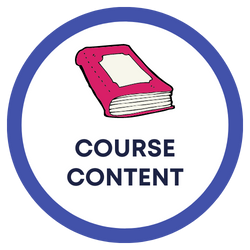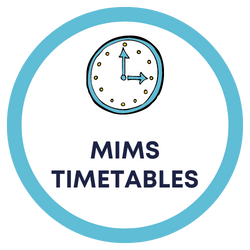Outline of the MIMS lecture courseImportant note. This information is provided at the beginning of the year for your guidance and that of your supervisors. It is not intended to be a comprehensive list of contents. Lecturers will all issue their own handouts, and may vary the topics and the order in which they are presented.
More detailed information about the content of the course can be downloaded by clicking on 'Course Content' (to the right). |
The LecturesThe course is organised around two themes:
We aim to present the core material in the setting of two diseases which are important in medicine and veterinary medicine - diabetes and cancer. Lectures are timetabled in the Babbage Lecture Theatre, New Museum site on Mondays, Tuesdays and Thursdays. The full timetable can be found by following the links in the right-hand sidebar. Each lecturer will provide a handout, which will be available via the MIMS Moodle page. Our general policy for the handouts is that they should reflect the structure of the lectures, and make compact statements about key features: tricky points may get additional explanation. The handouts should contain copies of all significant items displayed during lectures: they are not a literal script of the lectures, and don't include extended commentary or background reference information. To get most out of the lectures and make your learning an active process, we recommend that you take your own notes irrespective of the nature of any particular handout. This will also help with later consolidation and as you prepare for the examinations. |
The Practicals and DiscussionsThese are compulsory and you must sign in to register your attendance. Biochemistry and molecular biology are experimental science subjects. The services of clinical biochemistry laboratories are also an integral and important part of medical diagnosis. The course includes practical experiments for you to gain some insight into how laboratory investigations are carried out and how data are processed and interpreted. It is important that you take time to understand the underlying principles and context of the practicals, and also to evaluate the results that you obtained. To facilitate this, there is a separate 2-hour session for discussion and presentation of results for each practical. These are lead by senior demonstrators, but students will also sometimes be called on to present findings to the group. Discussions are a vital part of the course and are your best bet for fully understanding the practicals. |
Problem-Based Learning (PBL) ExercisesThese are compulsory and you must sign in to register your attendance. These structured exercises are intended to develop your skills of investigation in ‘researching a topic’ and in reporting the results. Each exercise has a launching session that is followed two weeks later by a reporting session. There are two PBL exercises, one in the Michaelmas Term ('Obesity and metabolic disease') and one in the Lent Term ('Genetics in health and disease'). There are separate sessions for medics and vets. |
Student feedback and representationWe take student comment very seriously in course development. We shall seek your views about the course by means of questionnaires and consultative meetings with your representatives each term. Questionnaire analyses and minutes of the consultative meetings will be available on the course Moodle site. |




